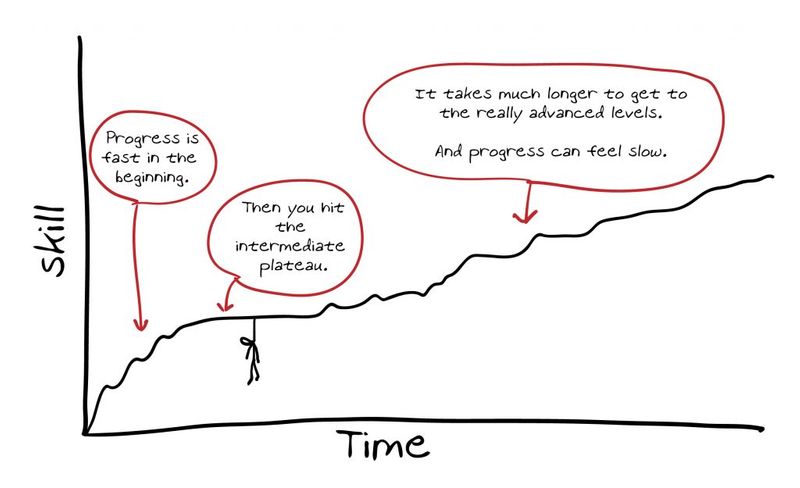
"Do you really think you can learn that?"
It's a challenge to learn a new skill. It's easy to doubt yourself.
The good news: you can meet challenges with realistic learning goals.
Setting realistic goals can help you:
make more effective learning plans
feel more confident about your goals
See The Big Picture

Learning is a project, so think like a builder.
Identify the building blocks of your project to help you decide if your goal is realistic.
For example, to learn how to build a cabinet, you'll need:
new knowledge -- cabinet designs, types of wood
new skills -- cutting, joining, sanding
It's a lot to learn!
If you think your goal is more than you can achieve, adjust your goal.
Maybe the cabinet is too ambitious for a woodworking beginner. Try simpler projects like:
a bird feeder
a cutting board
a jewelry box
Quiz
You're new to fitness but you want to train. What's a realistic goal for you?
Find Your Path
Learning is a journey, so you need to plan your path.
Here are two approaches that can help you find a way to your goal:
The Ladder
Start with the most basic skill and work your way up to the most challenging step.

The Sandbox
Start with the step that interests you the most, and move on to another step when you're ready, like a kid exploring toys in a sandbox.

Which approach is best for you?
If you have a "free" learning style, try the sandbox. If you're a more traditional learner, try the ladder.
Quiz
You want to learn gardening using the ladder approach. You've never gardened before. What should you learn first?
Commit Time & Effort

Your goal will take time and effort, so you need to plan your level of commitment. Ask yourself:
How much time can you spend working on your goal?
What can you do with that time to get closer to your goal?
If it's important to you, you'll make that commitment.
Just don't overdo it! It's best to learn in small bursts, especially if you have a busy life.
Quiz
You're working full-time and want to take French classes. What's a realistic time commitment each week?
Did you know?
Subscribe for more quick bites of learning delivered to your inbox.
Unsubscribe anytime. No spam. 🙂
Get Help
It's normal to get stuck on your learning journey. The graph below shows that progress can be fast and slow at different times.

When you're stuck, get help!
There are different ways to do this:
Ask an expert. If you know any experts in the field of your learning topic, ask them to help you.
Use online tools. There are many guides online that can help you learn. Search for your learning topic on Youtube or Lynda.com. There might even be a Byte for you!
Take Action

Try the strategies in this Byte to help you find realistic paths for learning success. Ask yourself:
What does the end goal look like?
Can I achieve it?
How do I get there?
How much time and effort can I put into it?
Who or what can help me get there?
Your goal is waiting for you!
Your feedback matters to us.
This Byte helped me better understand the topic.
